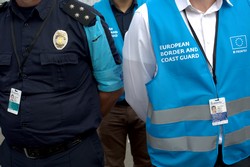The rise of agencification in the EU
A quiet shift is taking place in European politics: European foreign policy is increasingly being delegated to the realm of agencies, and many bureaucrats are becoming diplomats as a result. For example, Frontex, which coordinates border surveillance and management, is signing deals with foreign governments, while Europol is embarking on its own international agreements with countries such as Colombia and Turkey. It is important to understand where this widespread ‘agencification’ or growth in number of agencies is going and what its consequences are, particularly as these bureaucratic bodies operate independently of national frameworks. The EU-funded RELEX-AGENCIFICATION (Agencies in EU foreign policy: RELEX-Agencification) investigated this trend in European politics and its proliferation. Looking at the phenomenon from the perspective of the EU’s Area of freedom, security and justice (AFSJ), it found that research on European agencies remains limited. This holds especially true when compared to the case of the United States. Against this backdrop, the project team identified why these agencies were established and given specific authority or autonomy, examining as well how responsibilities and mandates changed. It looked at the reach and influence of interest shapers (e.g. European Parliament members, European Commission officials, Member States’ representatives), as well as at institutional dynamics, including entrepreneurship and bureaucratic resistance. The latter is important to understand any gaps between decisions on policies or agencies and the actual outcomes. Another consideration studied in relation to institutional dynamics was path dependency, which reveals how prior institutional developments have shaped successive ones. The research required the establishment of a theoretical framework and involved intensive literature reviews, including data from the AFSJ, Frontex, Europol and Eurojust, among other agencies. It was enriched through interviews with EU officials across Europe, affording new insights with respect to European public policy and European foreign and security policy. The new level of awareness regarding the role of agencies in EU foreign policy, along with increased transparency, could help maintain legal checks and balances in the bloc.







